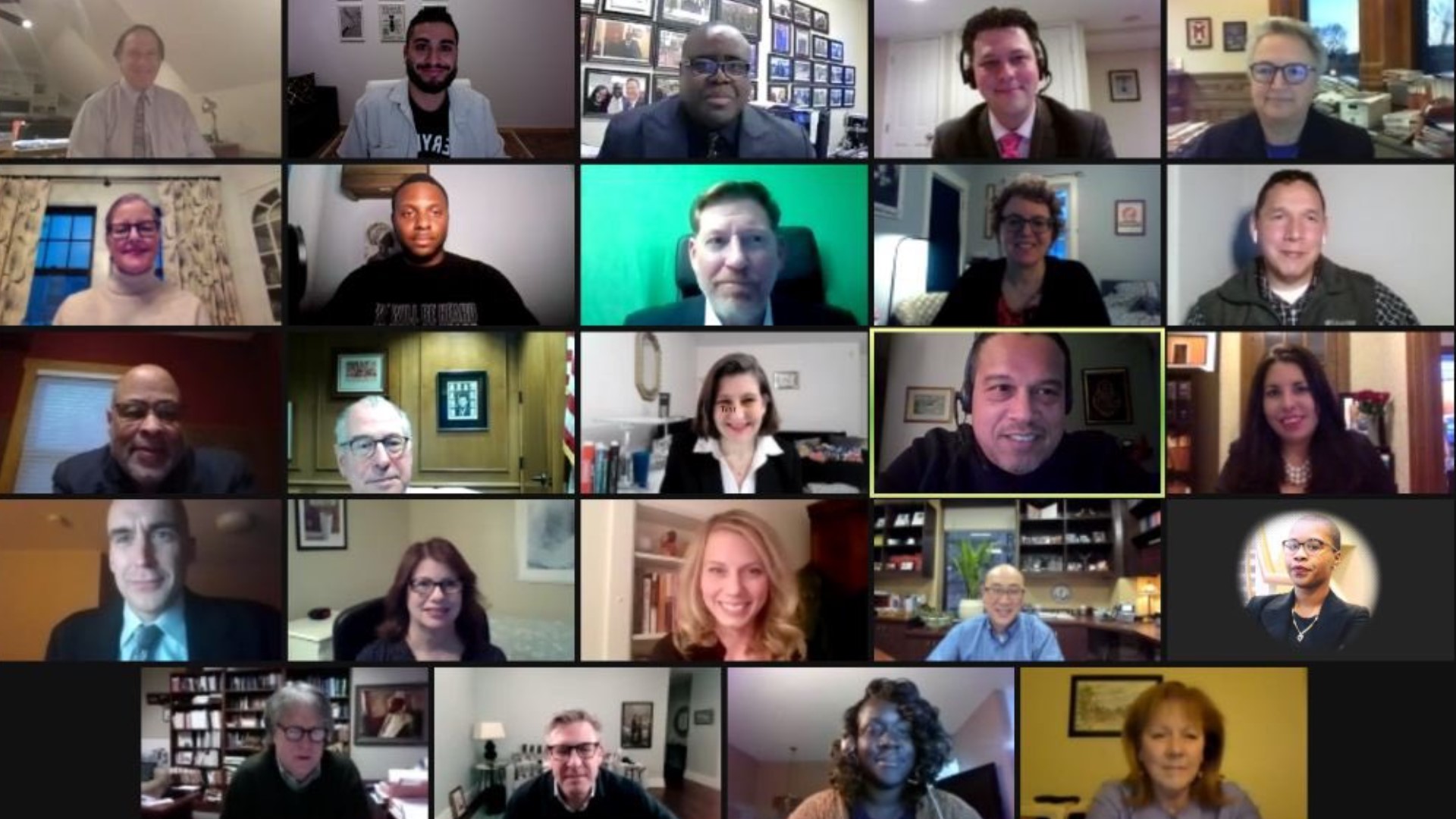In 2002, then-Ramsey County Attorney Susan Gaertner called a press conference to make an announcement.
Prosecutors in her jurisdiction had made a mistake. In 1985, they won a rape conviction against the wrong man.
“DNA testing initiated by the Ramsey County Attorney's Office has resulted in the exoneration of a man convicted of rape,” Gaertner said to a crowd of reporters.
David Brian Sutherlin had been identified by the victim in a photo lineup in the 1980s. But when it came time for trial, she could only say he “resembled” the attacker. Two other witnesses said he looked like he had lost weight. Nonetheless, the jury returned a verdict of guilty.
In 2001, Gaertner’s office started systematically reviewing convictions that could be retroactively DNA tested - to make sure they were accurate. A year later, DNA testing exonerated Sutherlin of the rape. He was proven innocent.
“In this case, the truth was delayed,” Gaertner said at the press conference. “But today, justice has been served.”
But Sutherlin didn’t get out of prison. Because while he wasn’t a rapist, he was a murderer.
The integrity of the system
Susan Gaertner remembers well the exoneration of David Brian Sutherlin. It came amid her office’s review of more than 100 convictions from 1962 to 1995.
Gaertner knew she might discover a mistake. And when she did, she announced it with lights and cameras instead of trying to hide it.
“We had a press conference to announce the vacation of that conviction,” she said. “We also followed up with system changes to make sure that that didn't happen again.”
David Brian Sutherlin was not a poster child for exoneration. He was serving a life sentence for two murders. And the exoneration did not set him free. At the most, it may have made him eligible for parole a little sooner.
“But probably more fundamentally is that if the conviction was false, it needs to be vacated,” Gaertner said. “For the sake of the integrity of the system. It goes well beyond the consequences for this individual.”
The consequences of a wrongful conviction can be far-reaching even for the victim - and future victims. In the case of David Brian Sutherlin, the true culprit was also identified by DNA testing. But because the statute of limitations had expired, he was never prosecuted.
Gaertner said the most important role of a prosecutor after winning a conviction, is being open to new evidence.
“I think it's important as a prosecutor to look across the board at any opportunities you have to check your work, essentially,” she said. “Because if it's left up to the happenstance of an individual getting someone's attention, whether it's the Innocence Project or a relative or friend, to rattle people's cages and get a second look, it shouldn't be based on that happenstance. It should be across the board.”
To Gaertner’s knowledge, she led the first prosecutor-initiated DNA review in the country. But it wasn’t the last. She was on the front end of a growing wave that’s now taking the form of “conviction integrity units” or “conviction review units.”
And now, Minnesota is creating its own.
The CRU
Minnesota Attorney General Keith Ellison is leading the charge on the state’s new conviction review unit (CRU). It’s only the fourth one in the country to be run through an attorney general’s office. Ellison is forming a board that will re-investigate cases submitted to them for review.
Minnesota’s CRU is being launched in partnership with the Great North Innocence Project, thanks to a $300,000 grant from the Department of Justice.
How will Ellison know he’s been successful?
“If everybody who is confined or convicted of an offense in Minnesota was convicted on the basis of law and evidence supporting those convictions, and if everybody who's innocent, didn't do what they're accused of, is free, and we can do it on the initiative of the prosecutor, not simply rely on the courts, but on the initiative of the prosecutor to make sure those things are true, I would say we're succeeding,” Ellison said.

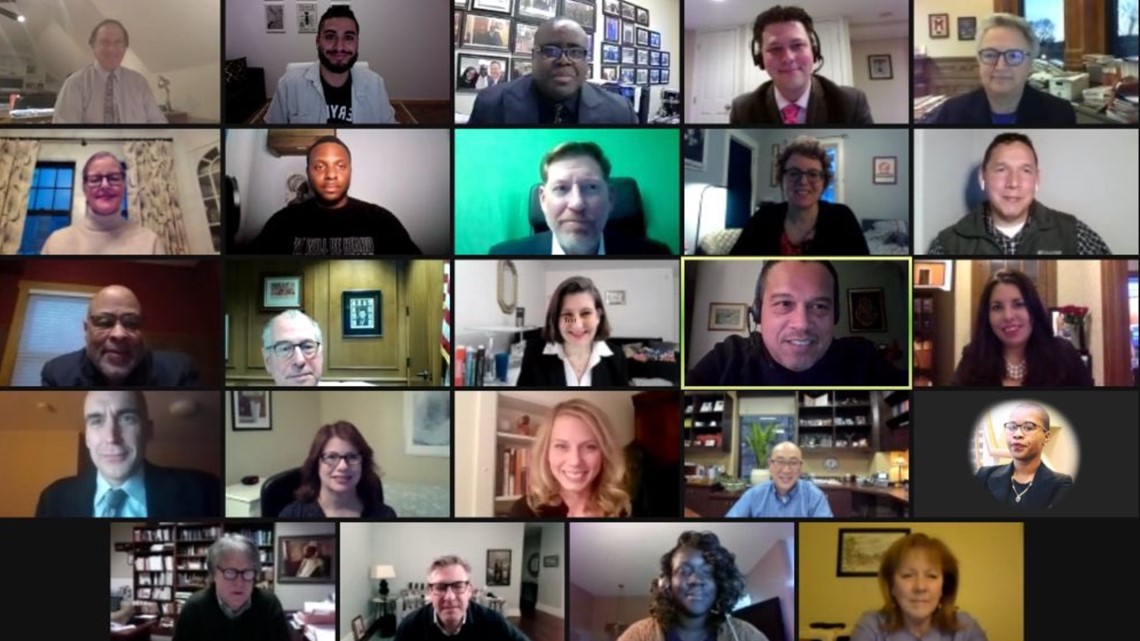
When the board makes a determination about a case, it will submit a recommendation to the prosecutor in that jurisdiction. It will then be up to the prosecutor to decide whether to move forward with dismissing the complaint.
Ellison says this process gives prosecutors a chance to make the first move, instead of waiting on a defense attorney to get justice for a person who’s wrongfully convicted.
“Once we know what we should do, we should do it,” Ellison said. “And we shouldn't have to have a judge ordering us to do it if we know that it's right.”
RELATED: New research shows prosecutors often fight winning innocence claims, offer deals to keep convictions
Keith Ellison is a prosecutor. In fact, he’s the state’s top prosecutor. He recently led a successful prosecution of Derek Chauvin, the first white officer in Minnesota to be convicted of murdering a Black man: George Floyd.
Ellison is a person who believes in prosecutors as “ministers of justice.” In other words, the good guys. And he says he plans to call upon the noble ideals that motivate prosecutors in Minnesota when he asks them to take another look at their own cases.
Here’s what Ellison hopes to say to those prosecutors, if and when the board decides a conviction should be overturned.
“Look, we know that you are a good prosecutor. We know that you are only trying to protect the public. You got into this for all the right reasons,” he said. “And we also know that most of the people you prosecute did do what you said they did. But this case is different.”
In taking this approach, Ellison plans to tackle one of the most basic human tendencies that may make it difficult for prosecutors to admit a mistake: Pride.
“We need you to understand that it is no loss of face for you to just say, ‘You know, this one, due to political pressure, due to mistakes, due to the science was wrong, due to something, that maybe this one didn't come out the way that we want it to.’ And it's not going to hurt your credibility to say that this person should get out. In fact, it might bolster your credibility because you're the kind of person who's not afraid to admit a mistake.’”
RELATED: After another man confessed to the crime, Hennepin County offered deal to preserve conviction
Potential conflicts of interest
One of the highest-profile cases expected to hit the desk of this review unit soon is that of Myon Burrell. He was convicted of murder and sentenced to life in prison at 16 years old.
An Associated Press investigation found that Burrell’s co-defendants now swear he wasn’t even there. Burrell has maintained his innocence and rejected every plea deal. His sentence was recently commuted by the state Board of Pardons, which includes Keith Ellison. So he’s out of prison now, but he still has the murder on his record. His lawyer plans to ask the CRU to look at his case.

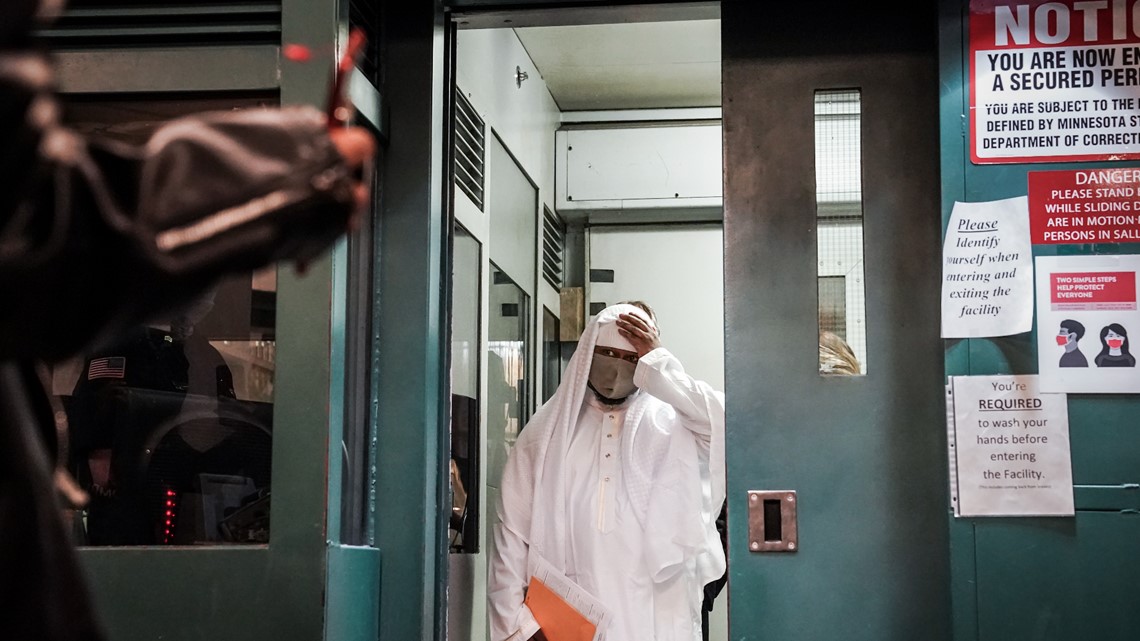
Hennepin County Attorney Mike Freeman has been fighting Burrell’s appeals, recently saying there is “no question” that he pulled the trigger. And Freeman is on the CRU board. So is Jon Choi, the Ramsey County attorney. They could both see cases of people they helped put behind bars.
“If you have a direct role in a case, that's a case that it makes sense to recuse yourself on that particular matter,” Ellison said. “So I will tell you that Mike Freeman has been very fair. I don't think it's fair to ask him to surrender his honestly held view. But I also think that it's fair to say, ‘Well, if you have a dog in this fight, let others who have a little bit more detachment take a look at it. And if you're right, they'll see it. And maybe if you're not, maybe they won't see it.’”
Ellison said this takes a “certain amount of courage” that he believes both Freeman and Choi possess.
If the board recommends that Burrell be exonerated, Freeman will still have the authority to accept or reject their decision. Ellison does not have jurisdiction over another prosecutor’s cases.
“There will be cases where the prosecutor, even after we review everything, simply does not agree that the defendant was wrongfully convicted,” Ellison said.
Should that happen, the CRU’s report is not binding on the prosecutor and carries no authoritative directive.
“In that case, you're going to need defense counsel,” Ellison said. “You're going to need the post-conviction process. You're going to need courts of appeal, habeas corpus. You're going to need those things to achieve what may be the just result. So we don't want to have this replace the court system. We need both.”
‘We’re not ministers of punishment’
Keith Ellison does not think this board will solve the problem of wrongful convictions in Minnesota. For him, it’s just one more tool to combat the inequities in the system - which he readily acknowledges exist.
“We do know that we have a system where there's a lot of things that we need to get a higher quality of justice,” he said. “And I believe that prosecutors should always be looking out for how to do a greater level of justice. We’re not ministers of punishment. We’re ministers of justice and mercy. And taking a second look at the evidence is part of the cause of justice.”

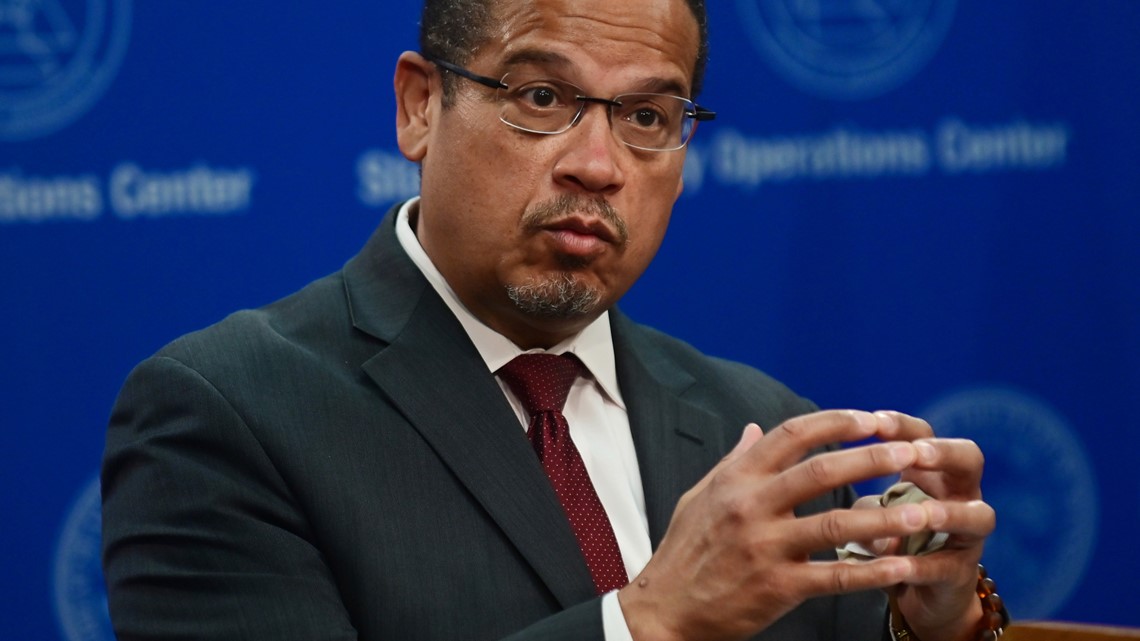
Ellison believes there are “many people” who have been convicted of crimes they didn’t commit.
“If you say you didn't do it, you know, we're not guaranteeing you're going to get out,” he said. “You may never get out, but we will say that we're not going to simply ignore your plea. If you've got law and facts to bring forward, somebody should at least look at it.”
The CRU, he acknowledged, is not a panacea.
“We don't expect that Nirvana will prevail after we get our CRU up and running,” he said. “But we do hope that in a small way it'll help somebody. And that will make our society, and that will make our criminal justice system, an institution that more people can trust and believe in.”
A system to replace slavery
Woven through any attempt to overturn wrongful convictions is the fact that among those behind bars in the United States, Black and Brown people are overwhelmingly overrepresented.
“We start with the premise that after slavery ended, it was replaced by the criminal justice system in many ways,” Ellison said.
A prime example of this is something called convict leasing, which rose up soon after slavery ended in 1865.
“Within a few years, if you were a Black man in Alabama, Mississippi or wherever, and you were found to be unemployed, it would be lawful for you to be arrested for vagrancy, put in prison and then put on a chain gang,” Ellison said. “And then the plantation you used to labor on as a slave now could hire you from the county to do what you used to do a few years before, still for free.”
Ellison said some people who don’t understand this history of systemic unfairness may misunderstand the “legacy of Black overrepresentation in the criminal justice system.”
“You know, a lot of people think, ‘Well, it's because African Americans are poor and socially disadvantaged, that they're in the criminal justice system because they don't have other options,’” he said. “There were a whole list of crimes that only Black people could be convicted for. You know, so that's not a ‘Black folks are poor. So they're committing crimes,’ no. That's just ‘We've made crimes for you.’”
RELATED: ‘They didn’t let me be great’: Wrongfully convicted Minneapolis man spent nearly 6 years behind bars
Lifetime bans on voting for people who committed crimes, enacted after the Civil War, served to further diminish the political power of the Black community.
“This is a legacy we’re dealing with right up until this very moment,” Ellison said. “We didn't start it, this generation didn’t start it, but we've got to do something about it.”
From where Ellison sits, this would not be the first generation to clean up the mistakes of the ones that came before it.
“There was a generation that said, ‘You know what? We're going to end slavery,’” Ellison said. “Lincoln's generation said, ‘Slavery in America. We're going to stop it.’ And they did. Martin Luther King's generation said, ‘You know, we're going to end Jim Crow.’ And they did. They ended Jim Crow, an institution that had been around for over a hundred years. What if this generation said, ‘We're going to end racism’? What about that? And so the CRU is just a little small drop in a big ocean to try to have a higher quality of justice for everyone.”
CRINOs (Conviction Review in Name Only)
The National Registry of Exonerations, from the University of California Irvine, the University of Michigan and Michigan State University, keeps a list of conviction integrity units. Many of them were founded in the 2010s, and several just in the last couple years, in 2020 and 2021.
The registry has split them up into two categories: units with recorded exonerations, and units with no exonerations recorded. The second list is longer.
Perhaps the most aggressive of all these units is the one in Philadelphia, run by supervisor Patricia Cummings under the leadership of District Attorney Larry Krasner.
The unit has achieved 24 exonerations for 23 people. All but three of them were under Krasner, who took office in 2018 and began working aggressively to overturn his district’s wrongful convictions.

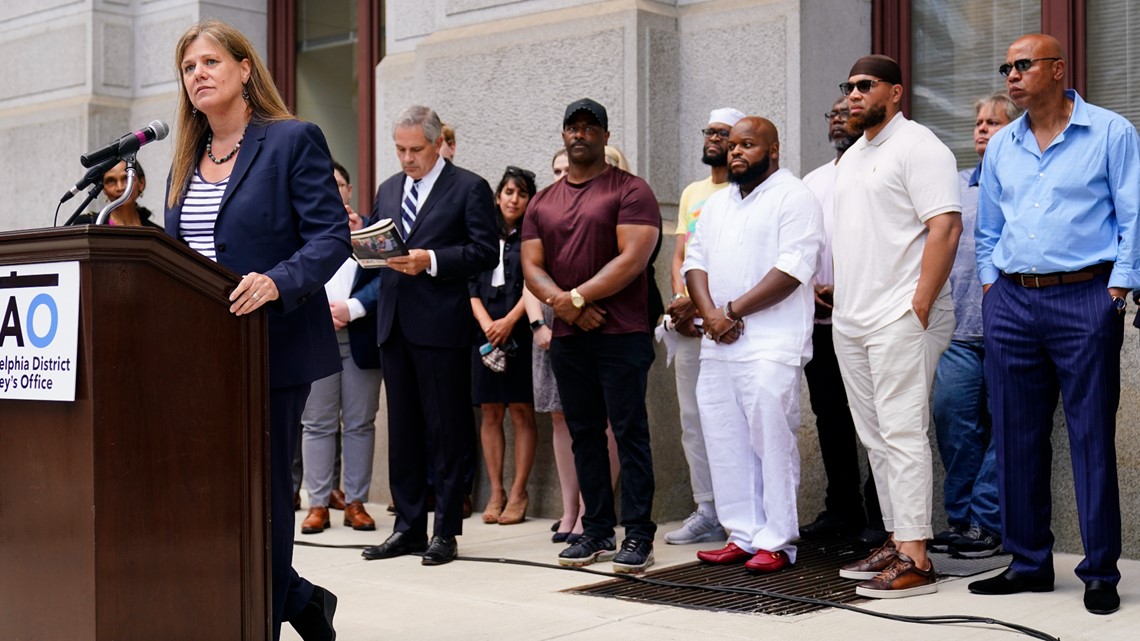
“You know, I guess the advice that I would give to other units and I would give to the AG in Minnesota is that three hundred thousand bucks ain't going to do it,” Krasner said.
“You are going to need a bunch of people,” he added. “You're going to need people who have deep experience. Three hundred thousand dollars might buy you one person with deep experience and a youngster and some overhead, but it's not going to buy you the resources that you need to do a very serious and deep dive on cases that look like they're worth being triaged.”
To achieve its impressive number of exonerations, Cummings said the Philadelphia unit has employed about 20 people between paralegals and attorneys.
“And that’s not enough people,” Cummings said. “I was telling somebody the other day, our queue of cases to look at is so incredibly long that if all of us worked every day, we probably would get through that queue - if you were really looking at them and not having to triage them the way we do - it’d probably take a decade.”
The huge amount of time and money required could be the reason for that long list of conviction review units with no exonerations recorded.
“There's a lot of units out there that people say are really not real units,” Cummings said. “And, you know, they call those CRINOs - conviction review in name only - just because it's the popular political thing of the day to do.”
Even when a city or jurisdiction deploys immense resources, like Philadelphia has, they work with an urgent knowledge that they will never get to every innocent person.
Experts who have studied wrongful convictions estimate the number at between 1 and 5% of the U.S. incarcerated population. That’s anywhere from 20,000 to 100,000 people or more.
“The best that we can do to be honest about this, is view it as an emergency ward or maybe as a wartime field hospital,” Krasner said. “Where everything you're doing is triage. You have limited resources, you have limited time. People have been in jail cells for a very, very long time. And you're trying to figure out the ones where there's a possibility of saving a life and then you're trying to save that life.”

